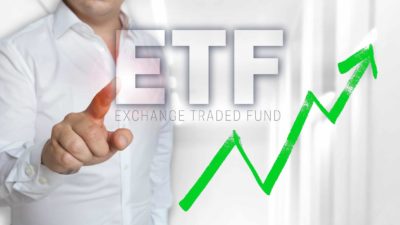There are a number of ASX index exchange-traded funds (ETFs), but they're not for me personally — or my portfolio. At least, not at this stage.
Investors have probably heard about some of the ASX index ETF options that are essentially based on the S&P/ASX 200 Index (ASX: XJO) or the S&P/ASX 300 Index (ASX: XKO).
I'm referring to ones like Vanguard Australian Shares Index ETF (ASX: VAS), iShares Core S&P/ASX 200 ETF (ASX: IOZ), and BetaShares Australia 200 ETF (ASX: A200).
Each has very low management fees, allowing investors to track the market for very little.
Investors may also have seen that fees are about to come down even further.
The iShares ASX 200 ETF is going to reduce its annual fee to 0.05%. Meantime, BetaShares Australia 200 ETF has decided to reduce its annual fees to just 0.04%.
Despite that positive development, I'm not looking to invest in any of these sorts of ASX index ETFs.
ASX blue chips largely don't appeal to me
I think investors could do just fine with any of those ETFs. But I'm still a relatively young investor – I have decades of compounding ahead of me. I'm looking for investments that can provide an attractive level of capital growth. Dividends are nice too, but it's not the only important thing to me.
When I look at the biggest positions in these ASX index ETFs, I see names like Rio Tinto Limited (ASX: RIO), BHP Group Ltd (ASX: BHP), Commonwealth Bank of Australia (ASX: CBA), ANZ Group Holdings Ltd (ASX: ANZ), and Woodside Energy Group Ltd (ASX: WDS).
At the right price, I wouldn't mind owning these businesses but none of the ones I mentioned appeal at the moment – so why would I want them as a large part of my ETF's portfolio?
They're already so big and I don't see how they can deliver a strong compound annual growth rate (CAGR) from here. A lot of the return from those names come in the form of dividends. As a full-time earner, that means quite a bit of the return would be reduced by tax each year.
Don't get me wrong, I do like some blue chips such as Telstra Group Ltd (ASX: TLS) and National Australia Bank Ltd (ASX: NAB). I particularly like their outlooks.
But I generally believe that there are smaller businesses, some with more defensive earnings, that could make better investments for my portfolio. I regularly write about some of the names I like as potential ASX 200 share investments.
ETFs can deliver growth
On the ASX, there are dozens of different ETFs to choose from.
Certainly, I think there are some that could deliver capital growth such as VanEck Morningstar Wide Moat ETF (ASX: MOAT) and Betashares Global Cybersecurity ETF (ASX: HACK).
Put simply, some businesses seem to have a bigger growth runway than the ASX's banks and miners, which could help deliver profit growth and share price growth.
To achieve the total returns I'm looking for, I want to find ASX shares that can achieve good profit growth, are putting their profit generation to good use, and are trading at a price that makes sense to buy.









